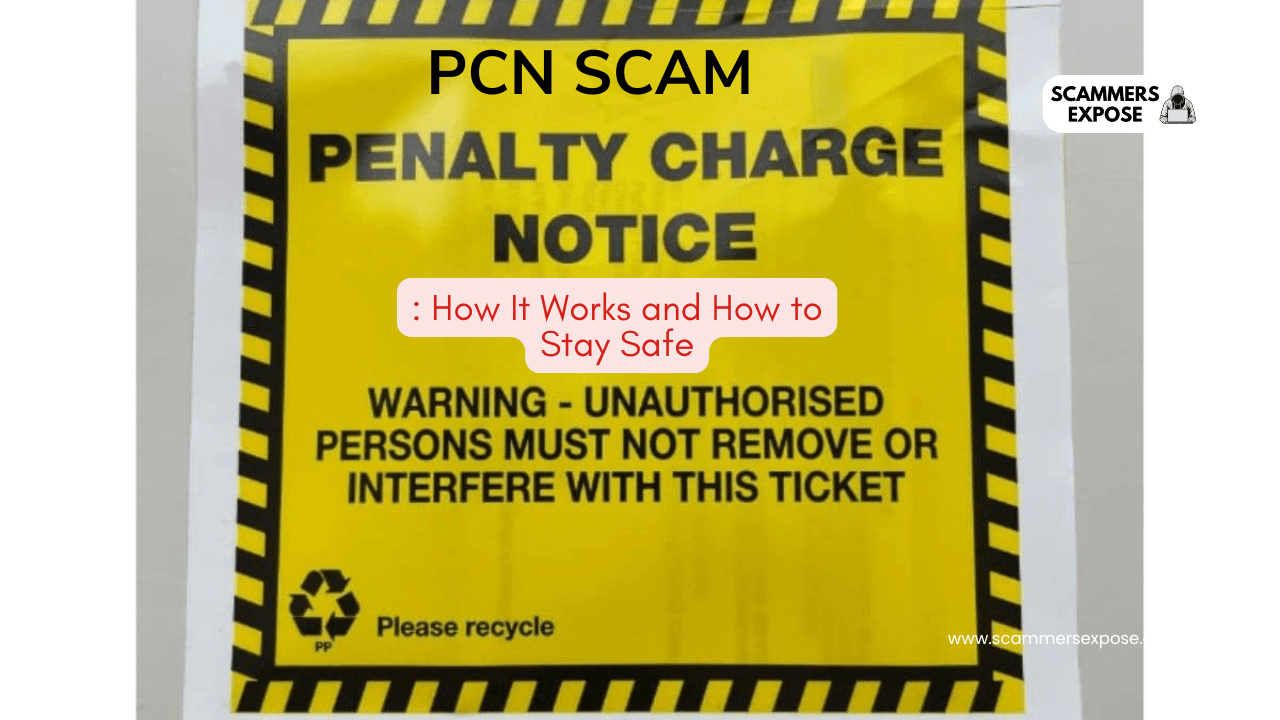Indian Scammer Names have become synonymous with a growing wave of global fraud targeting vulnerable individuals. These names, often used by sophisticated networks, are linked to various scams involving tax fraud, tech support schemes, and fake loan offers. In this post, we’ll explore some of the most infamous Indian scammer names and the tactics they use to deceive victims worldwide. By staying informed, you can protect yourself from falling prey to these fraudulent activities.
Common Indian Scammer Names and Their Modus Operandi
The rise of online scams, particularly call center-based operations originating from India, has brought certain Indian scammer names to prominence. These scammers often use fake names, aliases, or American-sounding names to deceive victims. Below, we outline the commonly used names and how these scammers operate.
Common Indian Scammer Names Used in Frauds
Many scammers choose names that sound trustworthy or official, often impersonating government agencies like the IRS or tech companies such as Microsoft. Here are some Indian scammer names often associated with fraudulent activities:
- Rajesh Bhatt (alias Mike Joshi): Known for impersonating IRS agents and demanding fraudulent tax payments.
- Montu Barot: Associated with phone scams involving fake loans and grants.
- Fahad Ali: Engaged in money laundering through call center operations.
- Viraj Patel: Linked to sophisticated money laundering schemes and international fraud.
These Indian scammer names have been used in various scams, particularly targeting U.S. citizens. Understanding these names helps in identifying potential fraudsters during suspicious calls or emails.
Modus Operandi of Indian Scammers
1. IRS Impersonation Scams One of the most common tactics used by scammers with Indian scammer names is to pose as IRS agents. Victims are often threatened with jail time, fines, or deportation unless they immediately pay a fake tax debt. The scammer uses intimidating language and pressures the victim to act fast.
- Fake IRS agents demand payment through:
- Wire transfers
- Prepaid debit cards
- Gift cards
2. Tech Support Scams Another notorious scheme is the tech support scam. Fraudsters with Indian scammer names such as “Alex Johnson” or “David” will contact victims, claiming their computer has been compromised. These scammers then convince their targets to pay for unnecessary software or remote repairs.
- Common methods include:
- Phone calls or pop-up warnings
- Requesting remote access to computers
- Charging fees for fake services
3. Lottery and Prize Scams Many scammers with Indian scammer names also engage in lottery scams, where they inform victims they’ve won a prize or lottery. However, to claim the winnings, the victim must first pay taxes or fees.
- Typical steps include:
- Calling or emailing victims about fake winnings
- Asking for payment upfront
- Disappearing once the payment is made
4. Call Center Scams India has been linked to several major call center scam operations where workers pose as U.S. government officials, tech support agents, or even immigration officers. Common Indian scammer names in these cases include aliases like “John Miller” or “Mike Carter,” which sound Western to avoid suspicion.
- Call centers typically:
- Use VoIP systems to mask their location
- Utilize American accents to appear credible
- Target vulnerable individuals, including the elderly
Protect Yourself from Scammers
While Indian scammer names can vary, the methods they use are often similar. Here are some ways to protect yourself from these scams:
- Never share personal information or make payments based on unsolicited phone calls.
- If an unknown caller uses pressure tactics, hang up and verify with the official institution they claim to represent.
- Beware of anyone asking for payments in gift cards, wire transfers, or prepaid cards.
By staying informed about Indian scammer names and their tactics, you can better identify fraudulent activities before falling victim.
Infamous Indian Call Centers Involved in Global Scams
In recent years, Indian call centers have been linked to large-scale fraud operations targeting individuals across the globe. These call centers, primarily based in cities like Ahmedabad and Mumbai, have become notorious for their involvement in scams. Several Indian scammer names have been associated with these fraudulent operations, deceiving victims in countries such as the United States, the UK, and Canada.
How Indian Call Centers Operate
Fraudulent Indian call centers typically engage in telemarketing and customer service scams that impersonate government agencies, tech companies, or financial institutions. Below are the key elements of how these centers work:
- Voice over Internet Protocol (VoIP): Scammers use VoIP to mask their location, making it appear as though they are calling from legitimate organizations in the victim’s country.
- Fake Accents and Names: Operators often use American or British accents and adopt Western-sounding Indian scammer names like “John Williams” or “Steve Rogers” to gain credibility.
- High-Pressure Tactics: Scammers often pressure victims into making quick payments, claiming they will face penalties or legal action if they don’t comply.
Common Scams Run by Indian Call Centers
Indian call centers are known for executing a variety of scams, often linked to recognizable Indian scammer names. Here are some of the most common types:
1. IRS and Tax Scams
One of the most notorious scams involves call centers impersonating the Internal Revenue Service (IRS) or other tax agencies. Fraudsters use Indian scammer names to demand immediate tax payments, often threatening victims with arrest or deportation.
- Key tactics:
- Claiming the victim owes back taxes
- Threatening legal consequences
- Demanding payments through wire transfers or prepaid cards
2. Tech Support Scams
In these scams, fraudsters pretend to be tech support from reputable companies like Microsoft or Apple. Callers with Indian scammer names will claim the victim’s computer is infected and needs urgent repair, often charging for fake services or stealing personal information.
- Common signs:
- Unsolicited calls or pop-ups warning about malware
- Requesting remote access to the victim’s computer
- Charging for fake antivirus software or repairs
3. Fake Loan or Grant Scams
Indian call centers have also been linked to fraudulent loan and grant schemes. Victims are promised quick approval for loans or grants but are required to pay upfront fees. Operators often use Indian scammer names to appear trustworthy and professional.
- Key features:
- Promising “guaranteed” loans or grants
- Requesting upfront payments for processing
- Disappearing once the fees are paid
Notable Indian Scammer Names Involved in Call Center Frauds
Several Indian scammer names have come to light through investigations and legal actions. These names are linked to call centers orchestrating large-scale scams:
- Rajesh Bhatt – Associated with call centers involved in tax scams, posing as an IRS agent.
- Bhavesh Patel – Involved in laundering money from fake IRS and tech support scams.
- Fahad Ali – Known for his role in managing call centers engaged in tech support fraud.
- Viraj Patel – Connected to high-profile global fraud schemes, including telemarketing scams.
Impact of Indian Call Center Scams
The impact of scams linked to Indian call centers is immense, with thousands of victims losing millions of dollars annually. These frauds erode trust in legitimate businesses and government institutions, as Indian scammer names continue to tarnish the reputation of Indian call centers.
- Victims: Often elderly or vulnerable individuals, especially in Western countries.
- Financial losses: Billions lost globally, as scams become increasingly sophisticated.
- Ongoing crackdown: Authorities in India and abroad are working together to arrest individuals associated with these call centers and bring down infamous Indian scammer names.
Recent Crackdowns on Indian Call Center Scams
Law enforcement agencies have made significant efforts to dismantle these operations. Joint efforts between U.S. and Indian authorities have led to the arrest of multiple scammers operating call centers. Many Indian scammer names linked to fraudulent call centers have been brought to justice, but the problem persists due to the complexity and size of these networks.
- Operations shut down: Several call centers in cities like Ahmedabad and Noida have been raided.
- Arrests: Key figures like Rajesh Bhatt and Bhavesh Patel have been arrested and sentenced for their roles in scams.
Types of Scams Linked to Indian Fraud Networks
Indian fraud networks have been associated with numerous global scams targeting vulnerable individuals. These networks often use specific Indian scammer names to deceive and manipulate victims. Understanding the different types of scams linked to these networks can help potential victims identify and avoid fraudulent activities.
1. IRS and Tax-Related Scams
One of the most common scams involves fraudsters impersonating IRS officials, where they use Indian scammer names such as “Rajesh Patel” or “Suresh Kumar.” These scammers threaten victims with arrest, fines, or deportation unless immediate payment is made.
- How the scam works:
- Scammers claim the victim owes unpaid taxes.
- Threats of legal action or jail time are used to pressure the victim.
- Victims are asked to pay via prepaid cards, gift cards, or wire transfers.
- Red flags:
- Unsolicited calls demanding payment for unpaid taxes.
- Requests for payment via non-traditional methods like gift cards.
2. Tech Support Scams
Another type of fraud linked to Indian scammer names involves fake tech support. Fraudsters claim to be from companies like Microsoft or Apple and convince victims that their computers are infected with viruses.
- Scam methodology:
- Scammers contact victims through pop-up ads or unsolicited calls.
- They ask for remote access to the victim’s computer.
- After “fixing” the non-existent problem, they charge victims for unnecessary services.
- Common tactics:
- Using names like “David Singh” or “John Sharma” to sound more trustworthy.
- Charging for fake software or repairs.
3. Loan and Grant Scams
Fraudsters using Indian scammer names often promise quick loans or government grants, targeting individuals who may be in financial distress. Scammers typically ask for an upfront fee to secure the loan or grant, but once the payment is made, the scammer disappears.
- How this scam operates:
- Victims are promised large loans or grants with no collateral.
- An upfront fee is required to “process” the loan or grant.
- Once the fee is paid, the scammer vanishes, and the loan never materializes.
- Warning signs:
- Unsolicited offers for loans or grants.
- Requests for upfront payment as a processing fee.
4. Romance Scams
Indian fraud networks have also been linked to romance scams, where scammers use fake Indian scammer names to pose as potential romantic partners. After gaining the trust of their victims, they start requesting money, claiming emergencies or travel expenses.
- How romance scams unfold:
- Scammers build relationships with victims online, usually through social media or dating sites.
- After establishing trust, they request money for fabricated emergencies.
- They often claim to be stranded in a foreign country or need money to visit the victim.
- Red flags:
- Requests for money early in the relationship.
- Inconsistent or suspicious behavior when asked for proof of identity.
5. Lottery and Prize Scams
Fraudsters associated with Indian scammer names frequently run lottery or prize scams. They inform victims that they’ve won a large sum of money but need to pay a fee upfront to claim the prize. Once the fee is paid, the victim never hears from the scammer again.
- How this scam works:
- Victims are contacted by scammers posing as lottery officials.
- They are told they’ve won a large prize, but must first pay taxes or processing fees.
- After the fee is paid, the scammers disappear.
- Signs to watch for:
- Being asked to pay a fee to claim a prize.
- Being told you won a lottery you never entered.
6. Job Scams
Job scams are another area where Indian scammer names are frequently used. Scammers offer fake job opportunities to individuals looking for work, especially on job boards or social media. They often require an upfront payment for training or materials.
- Common features of job scams:
- Job offers that seem too good to be true.
- Requests for upfront payments for training or background checks.
- Scammers disappearing once payments are made.
- Indicators of a job scam:
- Being asked to pay for a job application or training program.
- Unsolicited job offers with high salaries and minimal qualifications.
Protecting Yourself from Indian Fraud Networks
To avoid falling victim to scams linked to Indian scammer names, it’s essential to remain vigilant and follow these tips:
- Never share personal or financial information over the phone or online unless you can verify the legitimacy of the request.
- Be cautious of unsolicited calls or emails that request immediate payment or personal information.
- Research any offers or threats you receive, especially if they involve unfamiliar companies, agencies, or individuals.
By staying informed about the types of scams associated with Indian scammer names, you can protect yourself and others from falling prey to these fraudulent schemes.
Recent Crackdowns on Indian Scammer Operations
In recent years, authorities worldwide have intensified efforts to crack down on scam operations tied to Indian fraud networks. These operations, often linked to call centers, involve well-known Indian scammer names responsible for defrauding individuals globally. Here, we explore some of the most significant recent crackdowns that have disrupted these fraudulent networks.
Major Raids on Indian Call Centers
Over the past few years, multiple Indian call centers running global scams have been raided by law enforcement agencies. These raids have led to the exposure of various Indian scammer names involved in schemes ranging from IRS fraud to tech support scams.
- Ahmedabad Call Center Raids: Several call centers in Ahmedabad, India, were shut down in coordinated operations by Indian police and international agencies. These centers were primarily involved in IRS and tech support scams, targeting U.S. citizens. During the raids, numerous Indian scammer names such as “Rajesh Patel” and “Bhavesh Bhatt” were revealed as key players.
- Delhi and Mumbai Operations: Authorities in these major Indian cities have raided multiple call centers engaging in online fraud. Scammers used VoIP technology to impersonate government officials and demand immediate payments. Well-known Indian scammer names like “Suresh Sharma” and “Manoj Patel” surfaced during these operations.
U.S. Department of Justice Actions
The U.S. Department of Justice has been instrumental in investigating and prosecuting scammers linked to Indian fraud networks. Several high-profile cases have targeted individuals using Indian scammer names to impersonate IRS agents and dupe American citizens.
- IRS Impersonation Scam Arrests: A coordinated effort between U.S. and Indian law enforcement resulted in the arrest of numerous individuals, including those using the Indian scammer names “Rajesh Kumar” and “Bhavesh Patel.” These individuals were involved in call centers that defrauded thousands of victims by claiming false tax liabilities.
- Tech Support Scam Crackdown: Another major U.S. investigation exposed a network of scammers using fake tech support to extort money from unsuspecting victims. Callers using aliases like “David Singh” and “Amit Patel” were arrested and charged for running fraudulent operations across multiple states.
Collaborative Efforts Between U.S. and Indian Law Enforcement
The growing collaboration between U.S. and Indian law enforcement agencies has led to numerous crackdowns on call centers involved in global scams. Indian authorities, with help from international partners, have successfully arrested scammers using Indian scammer names in telefraud and cybercrime schemes.
- Operation Call It Quits: In a joint effort, both U.S. and Indian law enforcement arrested scammers tied to illegal robocall operations. The investigation revealed Indian scammer names such as “Pankaj Sharma” and “Rakesh Bhatt,” who had defrauded U.S. consumers using VoIP technology.
- Cross-Border Crackdowns: Indian authorities have continued to work closely with international agencies to dismantle call centers involved in scamming foreign nationals. These efforts have uncovered a web of Indian scammer names like “Ajay Kumar” and “Vishal Patel,” directly tied to large-scale fraud.
Legal Actions and Sentencing
Following the arrests, several key Indian scammer names have been sentenced to prison terms or deported. These legal actions have sent a strong message to fraudsters operating in India that such scams will not go unpunished.
- High-Profile Sentencing: Scammers such as “Rajesh Patel” and “Manoj Bhatt” have been sentenced to lengthy prison terms in both India and the U.S. for their roles in operating fraudulent call centers. These individuals were convicted for laundering money from tech support and IRS scams, defrauding thousands of victims globally.
- Deportations: Many scammers caught in these operations have also faced deportation after serving their sentences. Indian scammer names like “Fahad Ali” and “Niraj Patel” were among those deported following their involvement in multi-million-dollar scams.
Continuing Efforts to Combat Indian Scammer Networks
While significant progress has been made, the battle against Indian fraud networks is ongoing. Authorities are constantly working to expose Indian scammer names involved in new and evolving scam operations, such as cryptocurrency fraud, phishing, and investment scams.
- Ongoing Surveillance and Monitoring: Law enforcement agencies in both India and abroad continue to monitor suspicious activities related to call centers and online fraud schemes. With each new scam uncovered, more Indian scammer names are being linked to global fraud networks.
- Increased Public Awareness: Authorities are also raising awareness to help potential victims recognize scams linked to Indian scammer names. Public warnings, online resources, and fraud hotlines are being established to mitigate the risks of falling prey to these scams.
How to Identify and Report Scammer Names
As scams continue to rise globally, many are perpetrated by fraud networks using common Indian scammer names to deceive their targets. Recognizing these names and understanding how to report them can help protect individuals from falling victim to fraud. Here, we’ll break down how you can identify and report these scammer names effectively.
Signs of Scammers Using Indian Scammer Names
Scammers typically use tactics that rely on urgency, fear, and confusion. By recognizing Indian scammer names commonly used in fraudulent schemes, you can better protect yourself. Here are some key signs to watch for:
- Unsolicited calls or messages: Scammers often initiate contact unexpectedly through phone calls, emails, or text messages.
- Fake identities or aliases: Common Indian scammer names include names that sound either local or Westernized, such as “Rajesh Kumar,” “Suresh Patel,” or “David Sharma.”
- Threatening language: Scammers using Indian scammer names often threaten legal action, fines, or jail time unless payment is made immediately.
- Requests for unconventional payment methods: Be cautious if asked to make payments using gift cards, prepaid cards, or wire transfers.
Common Methods Used by Scammers
Fraud networks using Indian scammer names often employ various tactics to trick their victims. Here are the most prevalent methods:
- Impersonation of Government Officials: Scammers frequently claim to be representatives of agencies such as the IRS, using names like “Ravi Patel” or “Manish Gupta.” They may claim you owe back taxes and demand immediate payment.
- Tech Support Scams: Fraudsters posing as tech support agents from major companies, using names like “Amit Singh” or “Rakesh Sharma,” may call to “fix” nonexistent computer issues.
- Loan and Grant Scams: Scammers may promise guaranteed loans or grants, asking for an upfront processing fee. Indian scammer names like “Pankaj Desai” or “Arjun Patel” are commonly used in these frauds.
How to Report Indian Scammer Names
Reporting scammers is crucial to preventing further fraudulent activities. Here’s how you can report Indian scammer names to the appropriate authorities:
- Contact the Federal Trade Commission (FTC): For U.S.-based victims, you can file a complaint with the FTC. Provide any details you have about the scam, including the Indian scammer names involved.
- Report to Your Local Authorities: In the case of financial fraud or identity theft, report the incident to your local police department, especially if you lost money.
- Notify the Internet Crime Complaint Center (IC3): If the scam occurred online or involved internet-related fraud, you can report it to the IC3, operated by the FBI.
- Contact Phone Providers: For phone scams, notify your phone carrier. They may be able to block future scam calls from specific Indian scammer names or numbers.
- Reach Out to Consumer Protection Agencies: You can also report scam activity to consumer protection agencies in your region. They can track scams tied to Indian scammer names and warn others.
Best Practices to Avoid Scams
Being vigilant and knowing how to avoid scams is your first line of defense. Here’s how you can stay safe from scams linked to Indian scammer names:
- Do not respond to unsolicited contacts: Avoid answering calls, texts, or emails from unknown sources, especially if they claim to be urgent.
- Verify the identity of the caller: If someone claims to represent a legitimate organization, such as the IRS or Microsoft, hang up and contact the organization directly using verified contact information.
- Monitor your financial accounts: Keep an eye on your bank statements and credit reports to catch any suspicious activity early.
- Educate yourself and others: Stay informed about the latest scams and share what you’ve learned with friends and family to protect them from falling victim to Indian scammer names.
Visit our news section to stay updated with the latest developments in the case. For more insights into financial fraud and investor protection, visit Scammers Expose.










Leave a Reply